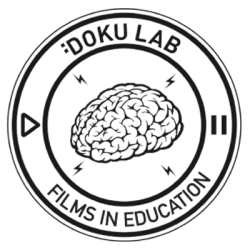Për qasje të plotë në Bibliotekën Digjitale ju duhet llogari aktive në DokuLab
Worksheets
The Exit of Trains
Directors: Adrian Cioflâncã, Radu Jude
This is a documentary essay composed entirely of archive photographs and documents of the first big massacre of the Jews in Romania: in the city of Iasi, on the 29th of June 1941, more than 10.000 Jews were killed - first by bullets, than by asphyxiation in freight trains. The film, which is an attempt to use the montage of archive materials in order to offer a deep and special view of History, has two parts: The first part of the film could be titled "the encyclopaedia of the dead": photographs of the people who were eventually killed by the Romanian army and by civilians are accompanied by voices who recite the documents related to their fate in the massacre: witness accounts, testimonies from the post-war trials, interviews with survivors, private diaries etc. The second part, shorter, represents a montage of the remaining photographs of the actual massacre (taken mostly by the German soldiers who were in town). Why a montage film with photographs and texts related to the Jassy pogrom of 1941? Because, as Georges Didi-Huberman shows, "Montage will precisely be one of the fundamental responses to this problem of the construction of historicity. As it has no simple orientation, montage evades theologies, montage escapes theologies, makes visible the remainders, the anachronisms, the encounters of contradictory temporalities that affect every object, every event, every person, every gesture. Thus, the historian gives up telling "a story", but, by doing so, he succeeds in showing that history cannot go without all the complexities of time, all the layers of archaeology, all the dottings of the destiny."

